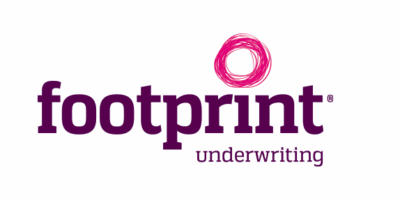In the fast-paced world of fund management, delegate oversight is paramount. However, this oversight comes with its fair share of challenges. Let’s explore some of the hurdles faced:
- Regulatory Compliance: Keeping up with ever-evolving regulatory requirements is a constant challenge. Firms must ensure that delegates adhere to stringent regulations, which often vary across jurisdictions. Failure to comply can result in hefty fines and damage to reputation.
- Risk Management: Delegating tasks to third parties introduces risks. Firms must diligently assess and mitigate these risks to safeguard the interests of various stakeholders. From operational risks to reputational risks, each aspect requires meticulous attention to detail.
- Due Diligence: Conducting thorough (initial and ongoing) due diligence on potential delegates is essential but time-consuming. Firms need to evaluate the delegate’s track record, financial stability, and adherence to industry best practices. Overlooking this step can lead to unforeseen complications down the line.
- Communication Challenges: Effective communication is crucial for successful delegate oversight. However, coordinating between multiple parties, each with their own priorities and agendas, can be daunting. Clear lines of communication must be established and maintained to ensure transparency and accountability.
- Data Security: With the increasing digitisation of financial services, protecting sensitive data is more critical than ever. Firms must ensure that delegates have robust cybersecurity measures in place to prevent data breaches and safeguard investor information.
- Conflicts of Interest: Delegates often serve multiple clients with potentially conflicting interests. Firms must address these conflicts upfront and implement measures to mitigate any adverse effects. Transparency and disclosure are key in managing conflicts of interest effectively.
- Performance Monitoring: Monitoring delegate performance is essential for assessing their contribution to the fund’s objectives. However, defining relevant performance metrics and establishing reliable monitoring mechanisms can be challenging. Firms must strike a balance between quantitative performance indicators and qualitative assessments.
- Cost Management: Delegating tasks to third-party service providers incurs costs, which can significantly impact the fund’s bottom line. Balancing cost-effectiveness with quality of service is a delicate task that requires careful consideration of various factors, including fees, value-added services, and long-term sustainability.
- Legal and Documentation Challenges: Drafting comprehensive legal agreements and documentation is a complex process that requires legal expertise. Funds must ensure that contractual terms adequately address responsibilities, liabilities, and dispute resolution mechanisms to mitigate legal risks.
- Cultural and Language Barriers: In an increasingly globalised industry, funds often work with delegates from diverse cultural backgrounds and regions. Overcoming language barriers and understanding cultural nuances is essential for effective collaboration and avoiding misunderstandings.
Conclusion
Delegate oversight in the funds industry is fraught with challenges, ranging from regulatory compliance to communication hurdles. However, by addressing these challenges proactively and implementing robust oversight mechanisms, funds can navigate these complexities and safeguard investor interests effectively.
Recent News
Minimum Competency Code – ‘And miles to go before I sleep’
The 1st October 2024 effective date for the expansion of the scope of the Minimum Competency Code 2017 ...
Read More Decoding the Digital Operational Resilience Act (DORA): CalQRisk’s Jargon Buster
Navigating the complexities of regulatory compliance can be daunting, especially with evolving digital landscapes. Enter the Digital Operational ...
Read More Ten Things to Learn from Managing an Incident
Incidents, while often complex and challenging, provide valuable learning opportunities that can enhance an organisation's resilience and strategic ...
Read More Navigating Risk: A Strategic Approach to Risk Management
In the vast ocean of business, navigating through turbulent waters demands more than just a sturdy ship; it ...
Read More Challenges of Reporting Risk and Compliance in Multi-Academy Trusts
In the intricate tapestry of educational governance, Multi-Academy Trusts (MATs) have emerged as model offering collaboration and shared ...
Read More Navigating Delegate Oversight – A Balancing Act
In the fast-paced world of fund management, delegate oversight is paramount. However, this oversight comes with its fair ...
Read More Tennis Ireland implements CalQRisk to streamline their approach to governance
Tennis Ireland have recently implemented the CalQRisk solution to transform their approach to board and committee meetings and ...
Read More Regulatory & Supervisory Outlook Report – 5 Key Risk Topics for Credit Unions
The Central Bank of Ireland has published its Regulatory & Supervisory Outlook Report 2024 which includes the Central ...
Read More CalQRisk shortlisted in RegTech Insight Awards
The CalQRisk solution has been shortlisted for two awards at the upcoming RegTech Insight Awards – Best Solution ...
Read More Footprint Underwriting onboards CalQRisk for risk management and compliance
Footprint Underwriting, a leading underwriting agency in Ireland, has recently implemented the CalQRisk solution in order to enhance ...
Read More 








